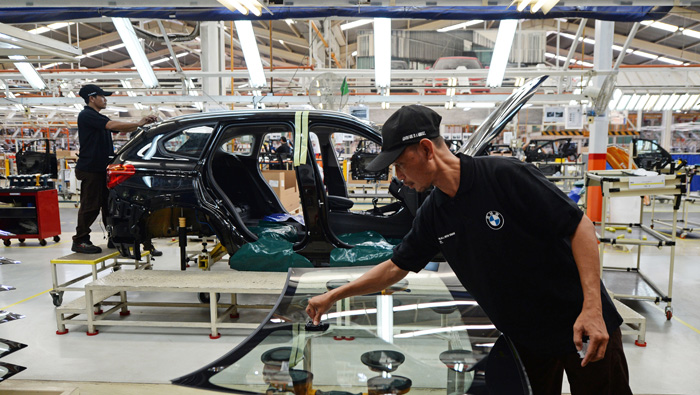
Munich: BMW’s second-quarter profit climbed 7.9 per cent as the luxury carmaker kept a tight hold on costs to offset a reliance on less-expensive vehicles such as the X1 compact SUV to boost sales.
Earnings before interest and tax rose to €2.73 billion ($3.05 billion) from €2.53 billion in the prior-year period. That surpassed to the €2.67 billion average of 10 analyst estimates. BMW’s result comes after Daimler, maker of Mercedes-Benz cars, and Volkswagen beat expectations with earnings that excluded one-time costs.
BMW lost its leading position in the world’s luxury-car market to Mercedes in the first half after its rival added a range of new models and revamped its business-focused E-Class sedan. BMW has said it will focus instead on profitability as it invests in technology, such as self-driving features, to compete with new rivals including Uber Technologies and Tesla Motors. It cut its first-half spending on factories and equipment 35 percent.
"BMW delivered a solid result,” said Arndt Ellinghorst, a London-based analyst for Evercore. "It wasn’t the kind of beat we saw from the others, but there’s a lot less volatility. They’ve had 25 quarters in succession of meeting their target corridor on profitability.”
The shares fell 0.5 per cent to €76.76 in Frankfurt. BMW has dropped 21 per cent this year, compared to a 3.8 per cent decline in Germany’s benchmark DAX Index.
Carmaking margin
Return on sales from carmaking was 9.5 per cent, compared to 8.4 percent in the same quarter last year. That compares to a profit margin of 10 per cent for Mercedes and 7.6 per cent for Audi. BMW confirmed its forecast of slight increases in deliveries and profit before tax this year, with a profit margin from carmaking between 8 per cent and 10 per cent.
BMW’s first-half capital expenditure spending dropped to €1.04 billion from €1.62 billion a year earlier. The carmaker also benefited from sharing components across a number of different models, which lowers development costs as well as providing a better negotiating position with suppliers, because the company buys more of the same part, said Sascha Gommel, a Frankfurt-based analyst with Commerzbank.
The average price of a BMW vehicle remained steady at €37,772, as the company relied on comparatively inexpensive cars such as the X1 compact sport utility vehicle for growth. Momentum also remained muted for the top-of-the-line 7-Series sedan that went on sale in October.
BMW is at a comparatively weak point in its product cycle. It’s preparing for next year’s remake of the 5-Series sedan, which competes with the Mercedes E-Class that went on sale in March. Another challenge has been U.S. customers’ shift toward SUVs, which has led to deeper discounts on the sedans at the core of BMW’s lineup. The carmaker altered plans to boost production of models such as the X5 SUV at its factory in Spartanburg, North Carolina, in reaction to the change in demand.
"We are growing profitably while simultaneously implementing our strategy step by step,” chief executive officer Harald Krueger said in a statement. Remaining profitable on the same scale will make it possible for BMW to "pursue our work on future technologies such as electric mobility and automated driving,” he said.
The carmaker said its sales of electric vehicles rose about 87 per cent in the first half, thanks to the introduction of new models. Sales of the X1 climbed 62 per cent.